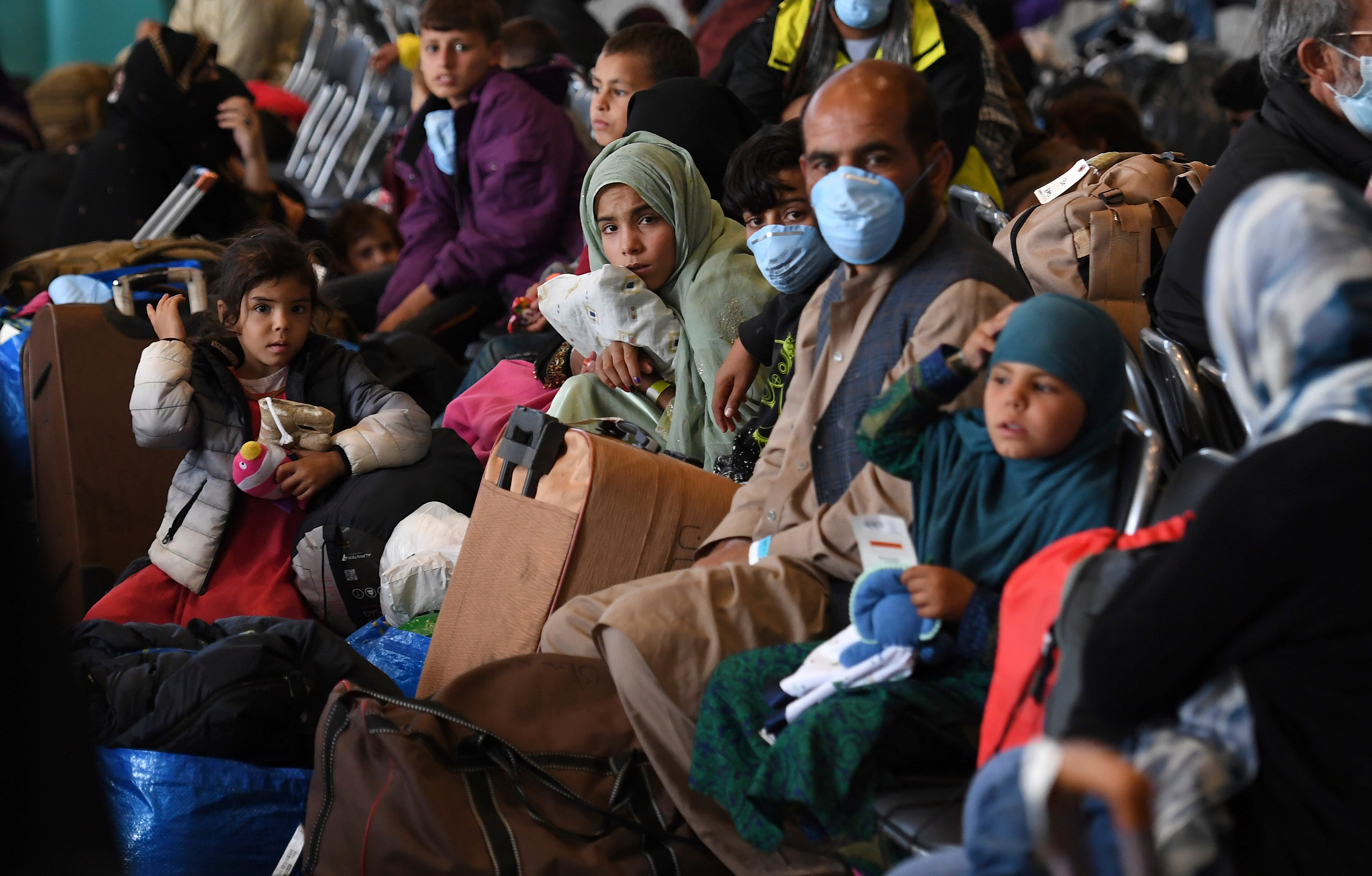White House officials are asking Congress for $6.4 billion in new, emergency funding to help resettle tens of thousands of Afghan citizens evacuated from their homeland in recent weeks.
The money could be approved as part of a federal budget extension lawmakers will have to approve by the end of September. If they don’t, it will trigger a partial government shutdown, since the fiscal 2022 federal funding bills are still months away from completion.
In a message from the White House to lawmakers on Tuesday, acting Office of Management and Budget Director Shalanda Young said the majority of the money would support processing operations for the allies and refugees and provide additional transportation from third-country waiting stations to final destinations for the individuals.
RELATED

“In addition to security processing, evacuees receive extensive COVID-19 and other public health precautions, and are resettled in the United States with the help of government-funded partners,” she wrote. “We urge Congress to appropriate $6.4 billion to enable the success of this multifaceted, historic mission.”
White House officials said the money would support plans to resettle nearly 100,000 Afghans in the United States over the next year.
Defense Department officials have said that more than 124,000 American citizens, Afghan allies and refugees were transported out of Afghanistan.
But administration officials have faced significant criticism for the chaotic nature of that evacuation, and continued questions about how many American citizens may still be trapped in the Taliban-controlled country.
State Department officials have said that as many as 200 American citizens may still be inside Afghanistan and trying to leave. President Joe Biden has vowed to get them to safety, but through diplomatic operations, not military incursions.
In addition, many advocacy groups have said that thousands of former interpreters, security personnel and other Afghan aides to American forces were left behind in the evacuation missions because of visa and paperwork problems. State Department officials met with U.S. veterans groups late last week to discuss possible solutions to help those individuals.
Earlier this year, the White House had asked for about $3.3 billion in the fiscal 2022 budget to support Afghan military and security personnel. The fall of the democratic Afghan government negated the need for that spending, but administration officials hope that at least some of that planned funding can be redirected to the refugee effort.
“The operation to move out of danger and to safety tens of thousands of Afghans at risk, including many who helped us during our two decades in Afghanistan, represents an extraordinary military, diplomatic, security, and humanitarian operation by the U.S. government,” Young wrote.
RELATED

White House officials also asked for at least $14 billion in additional emergency funding to deal with natural disasters in recent months, including the West Coast wildfires and hurricane damage in the southern U.S. in July and August.
The request does not include damage from Hurricane Ida, which caused an estimated $10 billion in damage in southern states and along the East Coast.
Senate Majority Leader Chuck Schumer, D-N.Y., late Tuesday voiced support for the plan, and vowed to work quickly with House leaders on passing a compromise plan.
Along with the budget extension, lawmakers will have to pass a measure to raise the federal debt ceiling to keep the government from defaulting on its debts. Both issues are expected to be the focus of intense partisan fighting over the next few weeks.
Leo covers Congress, Veterans Affairs and the White House for Military Times. He has covered Washington, D.C. since 2004, focusing on military personnel and veterans policies. His work has earned numerous honors, including a 2009 Polk award, a 2010 National Headliner Award, the IAVA Leadership in Journalism award and the VFW News Media award.





